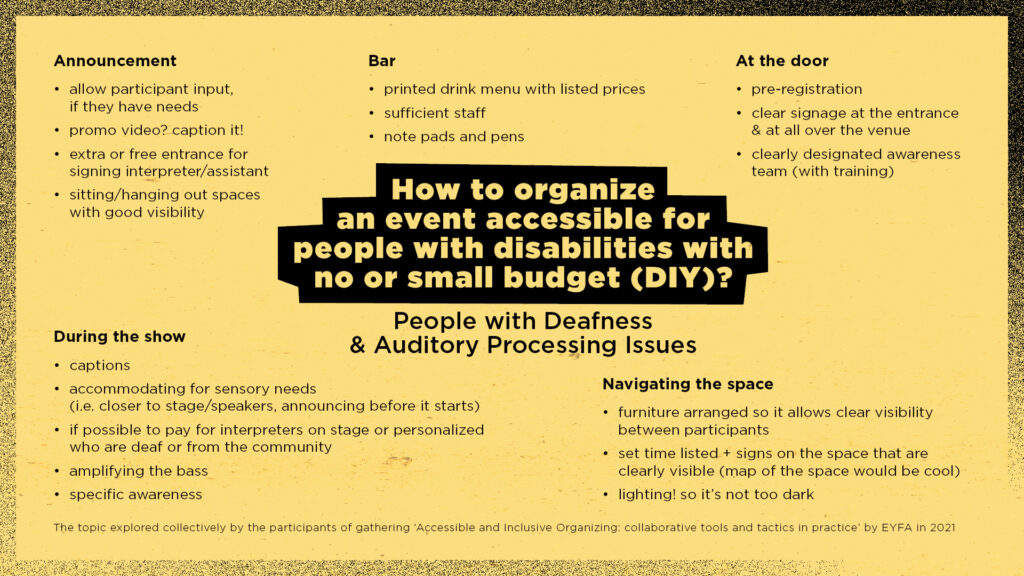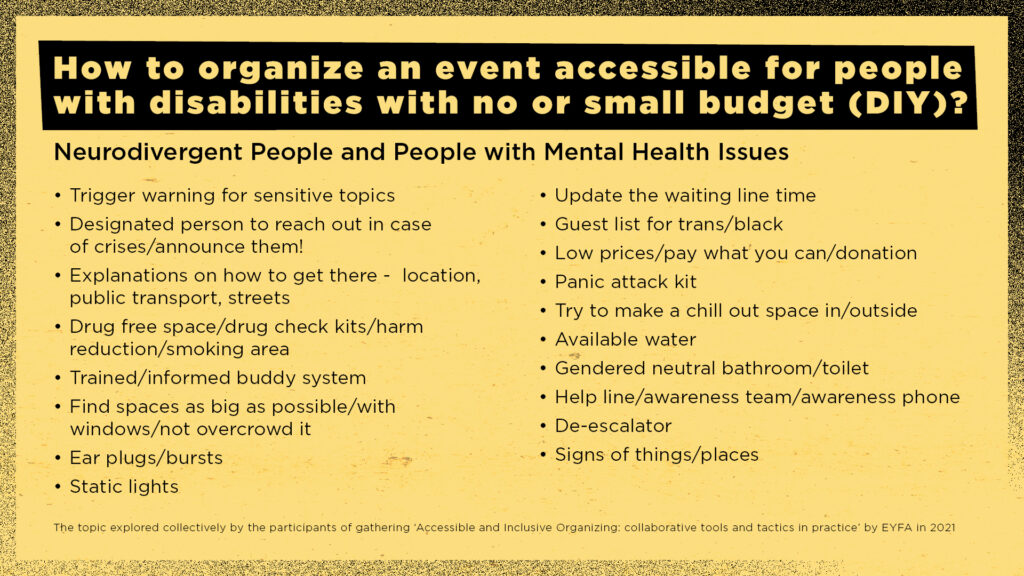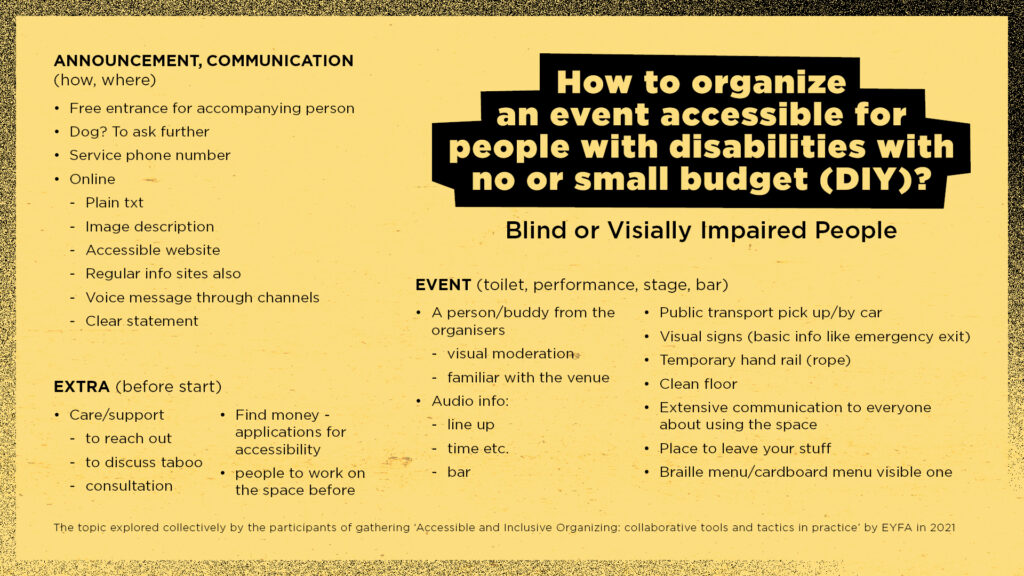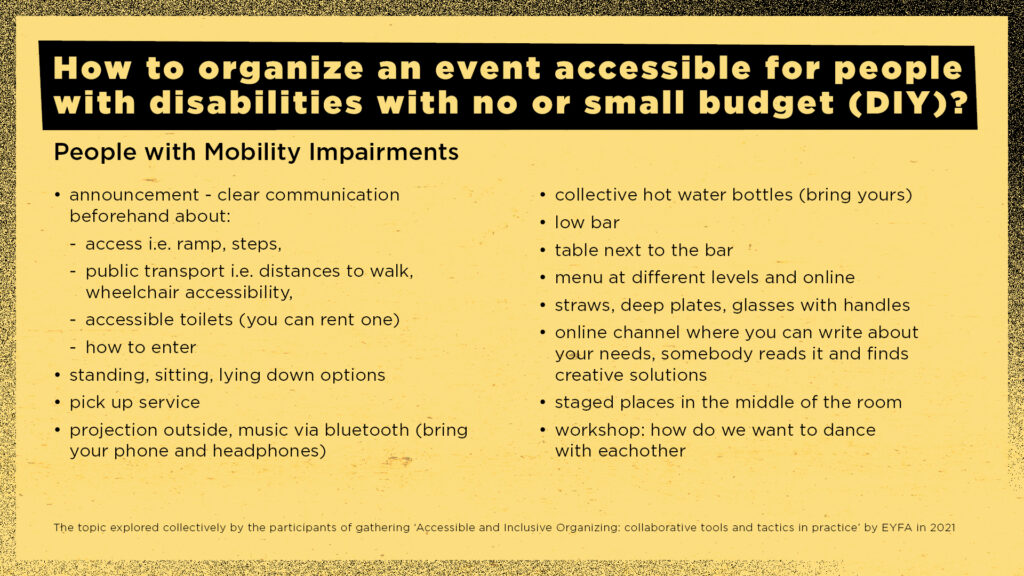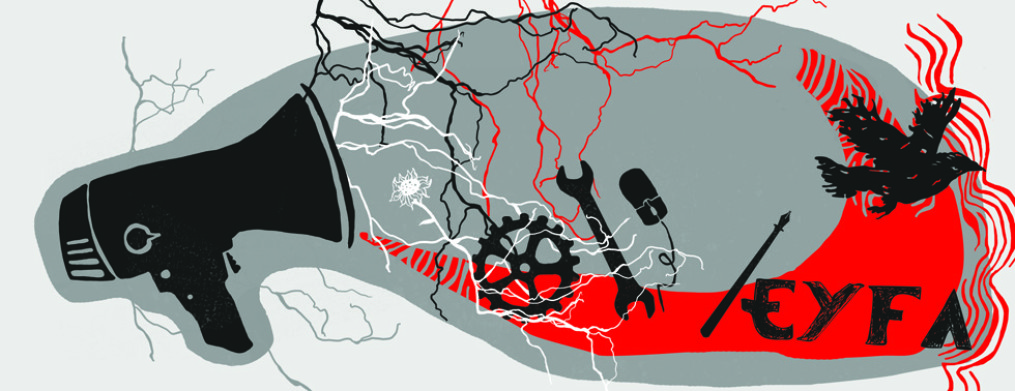Welcome to the fifth lesson of the online course (Dis?)Ability, in which we will learn how to organize an accessible event. Accessibility and intersectionality are about considering various needs of recipients in advance, not about making projects and then thinking how to adapt them, because accessibility is also about an interesting and attractive form (for instance when it comes to culture, educational projects, film festivals etc.)
Initiate a discussion with people from your collective or organisation to find out what you can do to improve. Watch the video together and face the reality; no matter how limited your budget is, how much capacity you lack or how important other issues seem to be – there is no excuse. Try harder!
- What needs to be changed in your organisation to think about accessibility and intersectionality at the very beginning of your actions?
- How do you take an intersectional perspective into account in your group/organisation? Have you defined missing or needed areas?
- Do you have a culture in your group where its easy to express needs and where people try to meet each others needs/make things accessible? If not, how could you create such a culture of care?
- Are your current projects addressed towards people with disabilities? Do you give them a chance to be addressed and invited? What does that process look like in your group? does it require any improvements?
- Can you think of examples of how ableist ways of thinking and organising affect everyone in the group?
Quotes:
“Whenever you recognize that everyone is looking the same in the room, there is a problem”.
“Don’t make it [accessibility, inclusion] about a person, it’s better for everyone [those solutions].”
Final task:
Here is the example of the checklist to organise a film festival in person. Based on that create a checklist for one of the events your group organises. Consult with somebody who has the experience of disability about your checklist or/and reach out to one of our experts (You can find links to their website at the end of each video lesson and posts).
Checklist:
- movie subtitles
- audio description
- sign language translation of the movies and the events
- assisting persons – accessible venue, including the toilets and other spaces
- all the information about the accessibility available beforehand, including social media
- people with disabilities in the orga group
- people with disabilities in the panel discussions
- visual content description
- silent room
- discounts for people with disabilities and free of charge for the assistants
- information about the public transport/car access to the venue
- additional screenings with educed levels of incentives
- workshop for the team.
Further reading recommendations:
Devon Price: Laziness Does Not Exist
Very detailed collaborative document on accessible activism
A basic accessibility checklist for events
A more in-depth checklist
Credits:
SchwarzRund
simo tier
Lian
Film Edit: Radical Resilience
Graphics: Carolina Arciniegas
Additional Images: @pikisuperstar and @freepik on Instagram
Music: Delila
Waiting for more practical tips? Here they come.
